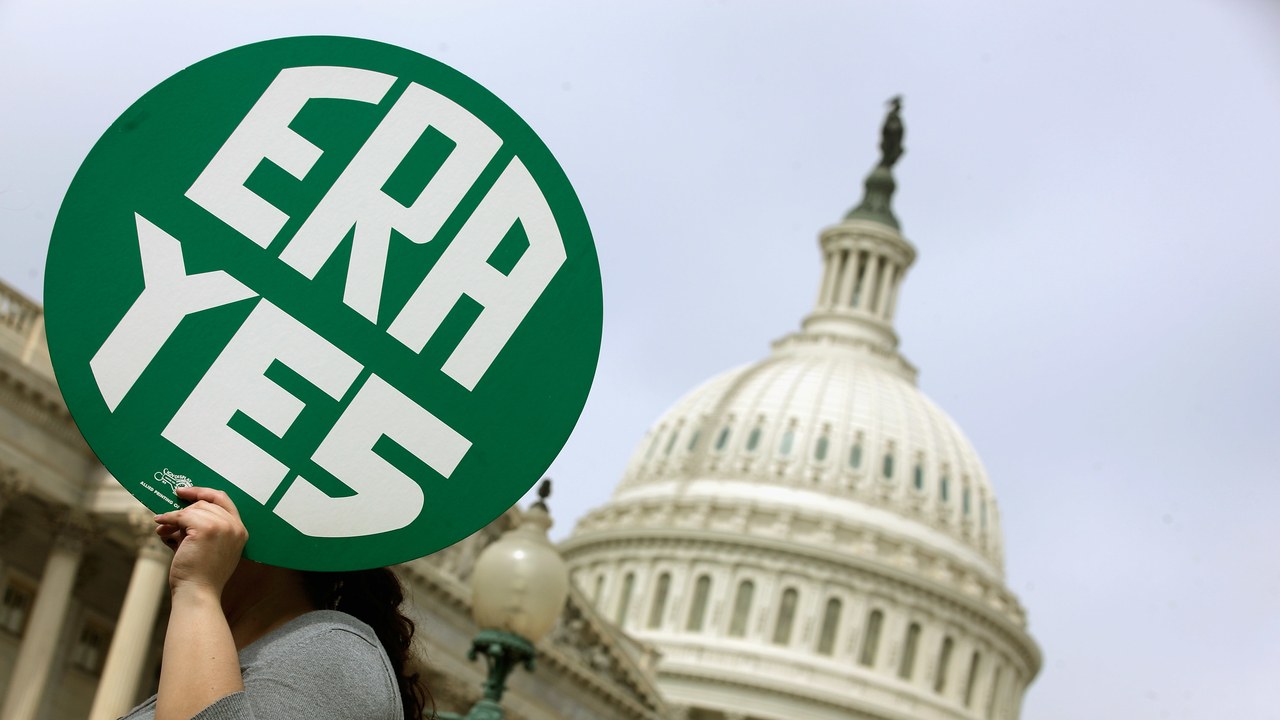The ERA Passes in Virginia, Paving the Way for Its Passage Nationwide

Watching that decision on TV, hearing friends and classmates debate what the precise restrictions on her rights should be—that was the moment when Foy decided to go to the Virginia Military Institute. “I had a friend,” she said in an interview, “who told me he wanted to go with me to the VMI to watch me fail. He bet me a dollar I wouldn’t graduate.”
She didn’t fail. She graduated, even when all the men from her JROTC had dropped out. “I did everything those men did,” she said. “I put on that uniform. I fought with them. I graduated with them.”
Foy understands a battle. She’s worked as a public defender, and she campaigned for her seat in the Virginia House of Delegates pregnant with twins. She’s also a black woman in a world where black women are disadvantaged not just compared with white men but with white women—earning 50 cents to the white man’s dollar (less than white women do) and suffering from maternal deaths at a higher rate than white women.
The stakes of the Equal Rights Amendment are real to her, and so she took the fight to the House of Delegates. To pass a constitutional amendment, the effort needs to be ratified in 38 states. The ERA was first proposed in 1923, and the battle to see it implemented has taken every single one of the years since. Some states have rescinded their ratification. Others have pushed off the debate around it. Congress set an initial deadline for 1979 for ratification for the ERA. The deadline was extended to 1982. Of course, even that deadline has since passed, but whether those deadlines are enforceable or not is still a question. (The 27th Amendment, for example, was ratified almost two centuries after it was first passed.)
Even in the face of such headwinds, Virginia is now the 38th state to back the ERA, securing its ratification on January 15, 2020. The amendment states: “Equality of rights under the law shall not be denied or abridged by the United States or by any State on account of sex.”
With an unclear road ahead to formalize this much anticipated development, the passage of the ERA in Virginia is at the moment a symbolic victory. But it’s not an empty one.
The erosion of equal rights is happening under this administration. Recently, 207 Republican lawmakers signed an amicus brief asking the Supreme Court to reconsider Roe v. Wade, the decision that legalized abortion nationwide. In some cases, Roe is all that stands between women and regressive laws like fetal-heartbeat bills and the continued effort to defund Planned Parenthood clinics. In Iowa, where I live, the governor announced her intention to pass an amendment to the state constitution that would prohibit abortion. There are also laws in Iowa that bar trans women from access to medically necessary surgery covered under Medicaid.
“Our rights,” said Foy, “should not hinge on an election.”
I don’t need to imagine a world in which women are not treated like equal citizens. I live in it. And it’s not hard to picture how it could get worse. Because it used to be worse. Last year my mother sent me a copy of the divorce decree from one of my relatives who dissolved her marriage in the 1940s. The decree forbade her to get remarried without the consent of a judge. My mom can remember a time when women couldn’t get home loans or open up lines of credit without their husband’s consent. In The Handmaid’s Tale, Margaret Atwood warned us of a near future in which women have no rights to their bodies at all. I can see that world too.
